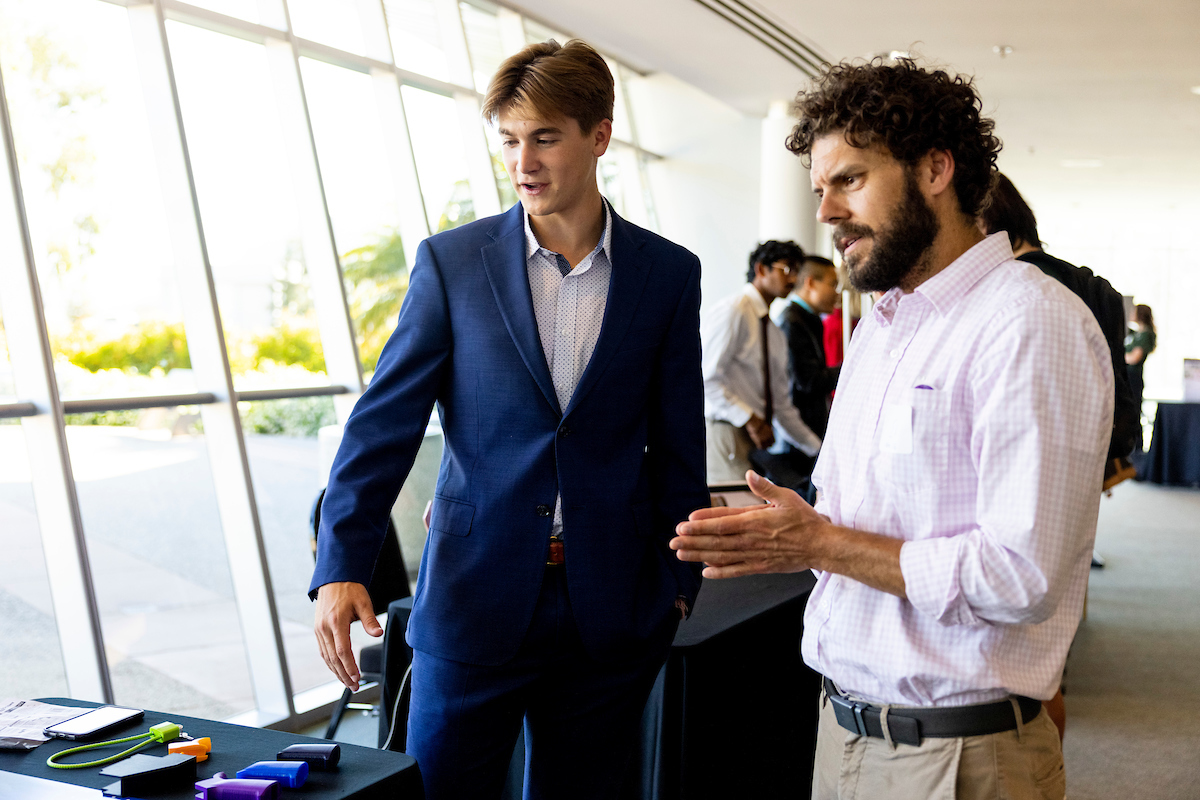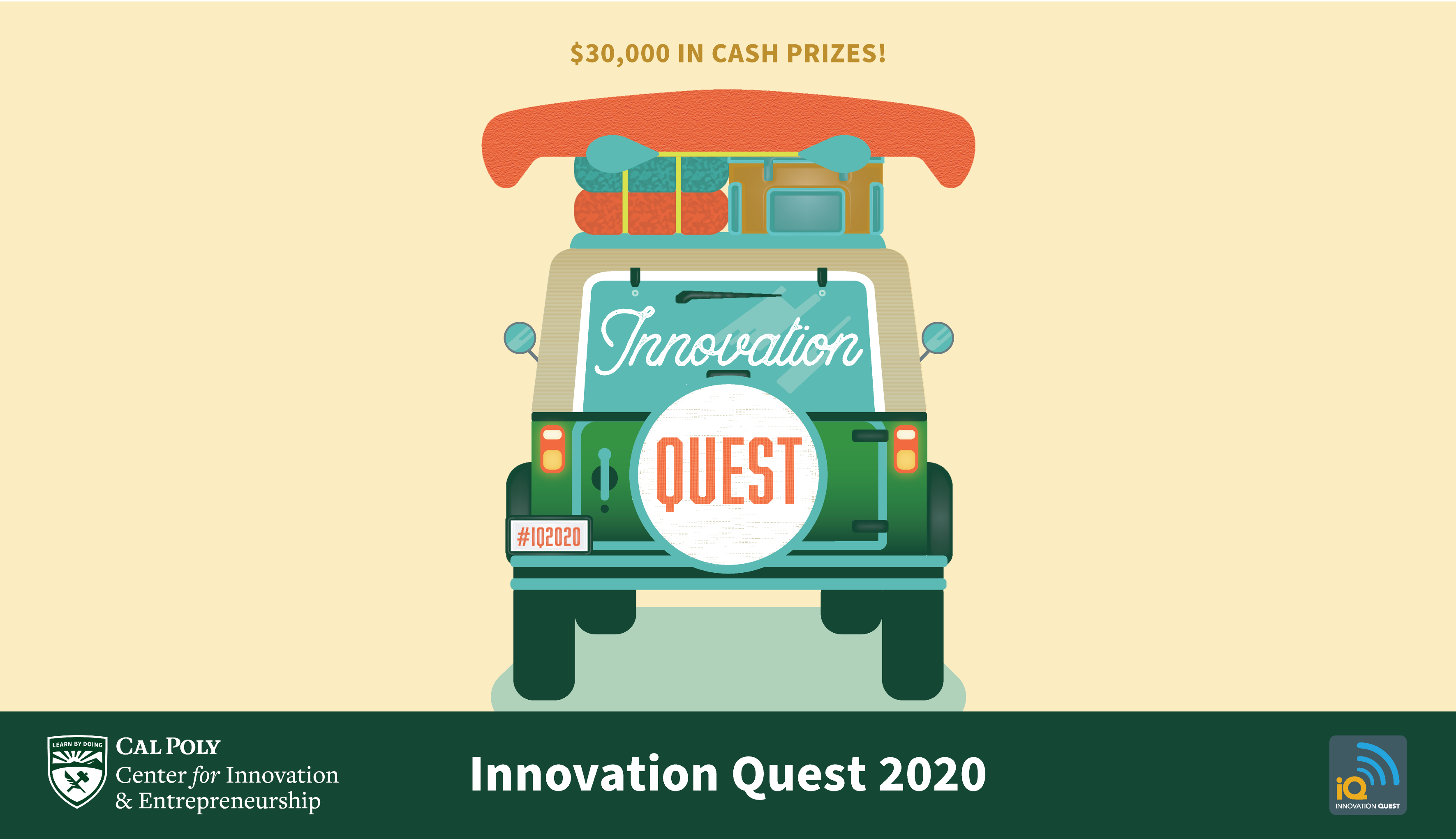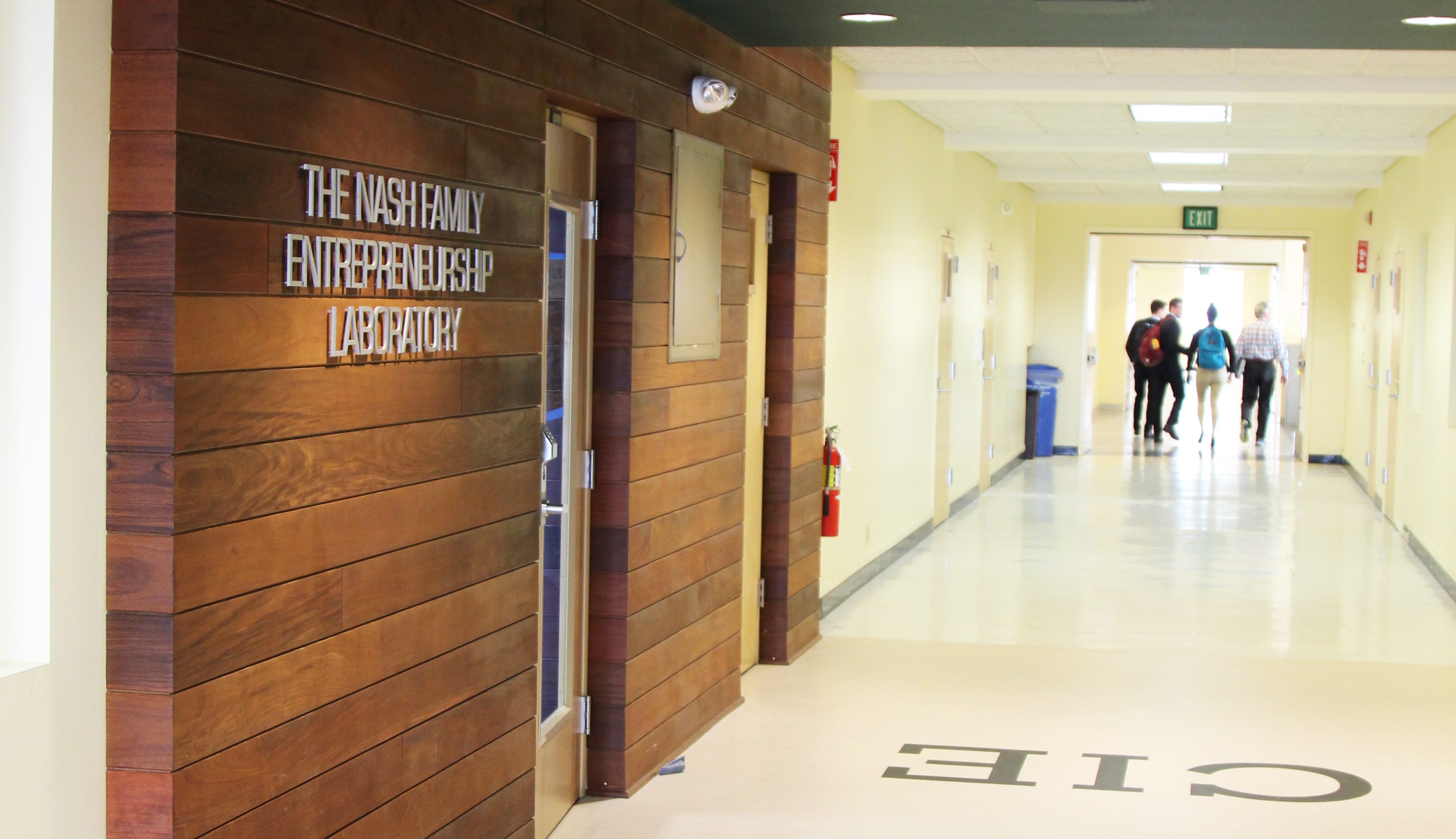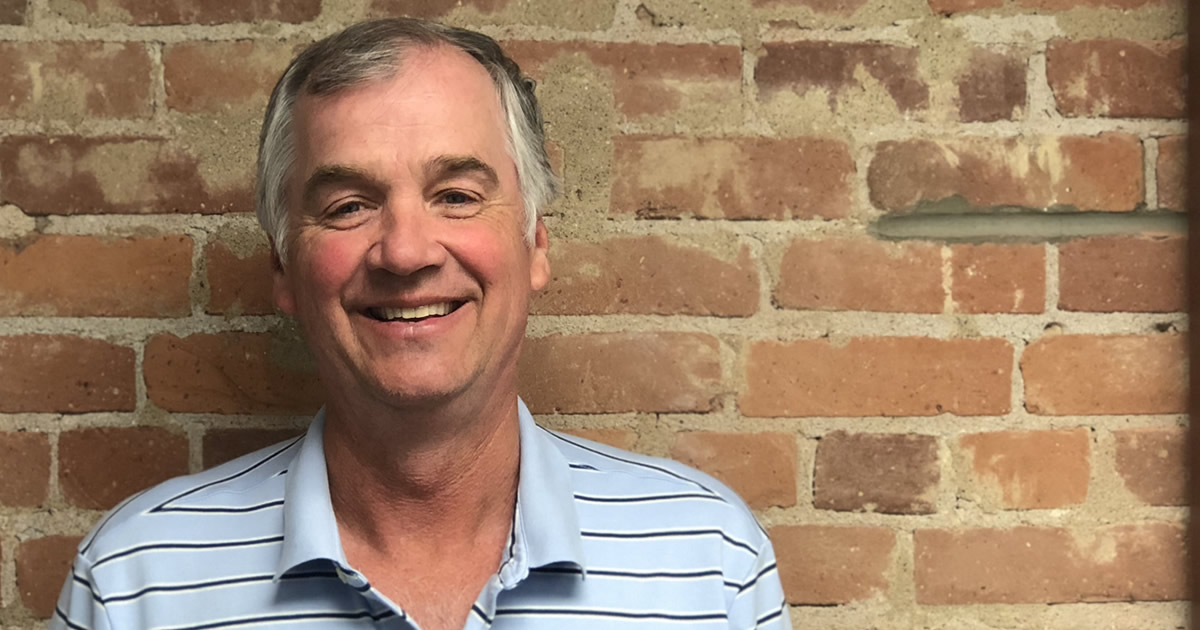Meet the professor bringing entrepreneurship to Cal Poly’s College of Science and Math

Biochemistry professor Erik Sapper is on a mission to introduce entrepreneurship to Cal Poly’s College of Science and Math (CSM).
The mission began when Sapper was working with a chemistry student who expressed an interest in starting her own materials design company, but didn’t have the resources to do so — or rather, didn’t know the resources available to her. Sapper, still new to his role at Cal Poly, also didn’t know the resources the university offered for students interested in entrepreneurship.
“I was frustrated because I was a new faculty member at the time and I did not know how I could support a student like this,” Sapper said. “I didn’t know anything about starting a company from scratch. I also did not know about resources on campus, so the opportunity with this student was unfortunately wasted.”
Sapper’s student eventually found a job at a local chemical company, and according to Sapper is happy with her profession, but Sapper said that he felt like he had missed an opportunity to help foster his student’s “entrepreneurial spirit.”
He began to look into entrepreneurship opportunities at Cal Poly so that he could help future CSM students with an interest in entrepreneurship. He discovered the Cal Poly Center for Innovation and Entrepreneurship (CIE), and applied to become a CIE Faculty Fellow.
Faculty Fellows are Cal Poly instructors from across campus who incorporate entrepreneurship into their coursework, and introduce students to entrepreneurial opportunities.
Sapper incorporated entrepreneurship and innovation into his chemistry classes by utilizing concepts of design thinking, which allows “students to think about problems in interesting and different ways that they might not have been exposed to in the past,” according to Sapper.
“Scientists typically think about the scientific method,” he said. “They don’t think about design elements that might not be relevant to a scientific solution, but are very relevant to business solutions.”
Sapper was recently appointed as the first ever Innovation Lead within CSM, which will allow him to introduce CSM students and faculty to the principles of entrepreneurship, as well as entrepreneurial resources on Cal Poly’s campus. The CSM Innovation Lead role was made possible with a donation from Tim Geistlinger, a CSM alumnus and the founding scientist behind Beyond Meat.
“My number one objective as Innovation Lead is to get the message out that science and math majors can participate in entrepreneurship,” Sapper said. “Entrepreneurship is a method of problem-solving, and scientists and mathematicians are really good at solving problems.”
One of his first endeavors as Innovation Lead was to create an Innovation Summer Camp, a program offered to CSM undergraduate students conducting summer research.
The summer camp was a crash course in innovation and design thinking. Students read and discussed a book about how design shapes the world; toured Cal Poly’s Innovation Sandbox, an on-campus lab of prototyping and ideation tools; and sat in on the CIE Summer Accelerator’s guest speaker series at their downtown HotHouse.
“We learned a lot in the summer camp that you don’t really think about in science and math classes,” said biology senior Paul Kim, who participated in the summer camp. “It opens you up to new ways of thinking.”
Sapper intends to hold another Innovation Summer Camp in the summer of 2023.








